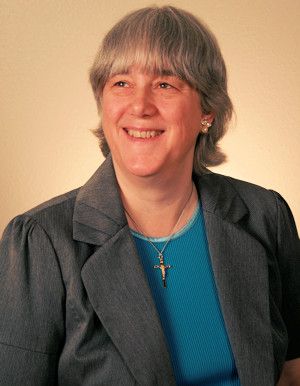Yesterday, I began sharing parts of a conversation that I was privileged to have with Everett Fritz, author of the recently released book, The Art of Forming Young Disciples: Why Youth Ministries Aren’t Working And What To Do About It.
Today, I will focus upon an aspect of our conversation that I myself have intuitively known, and have been searching to find an answer for how to do it, when Everett said, “You can’t instruct people into lifelong discipleship.”
Because my own experience of working with youth and adults has reflected that exact reality, I immediately asked Everett what he has found to make a difference in creating lifelong disciples.
“The two biggest difference makers (for people becoming lifelong disciples) are a witness who is living a real and joy-filled discipleship that will accompany them on the journey, and a community of peers to hold them accountable.”
For a young person, that translates into an adult, other than a parent, who mentors and guides he or she in the ways of discipleship, along with a small group of like-minded friends with whom to share with and be held accountable by during the experience.
In fact, the Pre-Synodal Report prepared by young people for consideration by Syndonal Fathers who will gather for the Synod on Young People, the Faith and Vocational Discernment to be held at the end of October in Rome, bears this out. In the report, there is an entire section on “Young People and Accompaniment,” and in that section, it states:
“Young people are looking for companions on the journey, to be embraced by faithful men and women who express the truth and allow young people to articulate their understanding of faith and their vocation. Such people do not need to be models of faith to imitate, but instead living testimonies to witness.”
While many people are familiar with Mazlow’s hierarchy of needs, Everett said that he actually prefers to use a colleague from the Augustine Institute in Denver, Colorado, Sean Dalton’s, listing of the five needs of young people—the need to be understood; the need to belong; the need to be transparent; the need for critical thinking about faith and life; and the need for guidance.
Everett explained that the desire for mentors, plus being part of a small group of friends combine to meet the needs of all adolescents (of all ages of people actually, as reflected in the Pre-Synodal document and in Pope Francis’s own Evangelii Gaudium), and this is especially important in high school.
“This (high school) is the most vulnerable time for young people because they are becoming who they are…it’s why young people need a person, not a program.”
Unfortunately, Everett has seen that the current structures and processes through which the Church shares the Good News with young people, especially within a parish setting, seems to ignore this truth.
“CCD (Religious Educations, PSR) is long outdated for a practical application. It’s actually counterproductive for middle and high school students because it is not what they need.” (emphases mine)
It was when Everett had his realization affirmed by a young woman and her mother that the girl’s lack of participation in organized youth group activities, catechetical programs, and other events at the parish was simply an indicator that her pastoral needs were not being met, that he really understood in earnest that a change in how we as a Church approach youth ministry was desperately needed.
It’s the approach, and the mentality necessary to incorporate that approach, that we will turn our attention to next.



